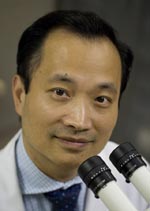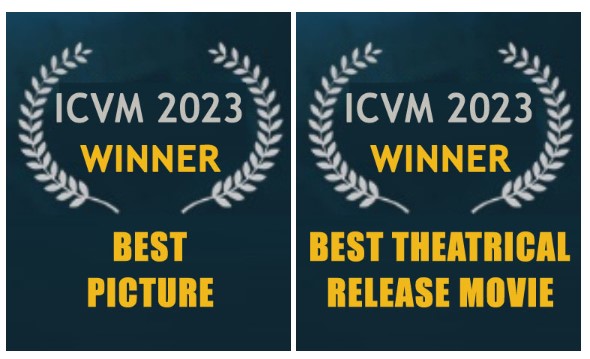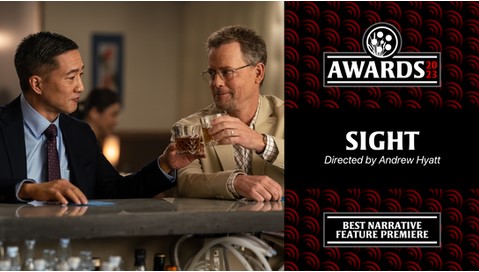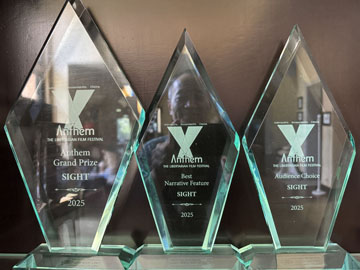Written by Yitzi Weiner, A “Positive” Influencer, Founder & Editor of Authority Magazine, CEO of Thought Leader Incubator, On Authority Magazine on Medium.com and thriveglobal.com
Who you are working with is more important than what you’re working on. With the right business partner, you might be able to do the right thing; but, with the wrong partner, you will never be able to do the right thing.
As part of my series about “individuals and organizations making an important social impact”, I had the pleasure of interviewing Dr. Ming Wang.
Dr. Ming Wang, MD, PhD attended Harvard Medical School and MIT in the 1980’s. Today he is a world-class eye surgeon, celebrated philanthropist, and community activist. He is the founding director of the internationally known Wang Vision Institute in Nashville, TN, which provides sight restoration surgeries for patients who otherwise would never have the opportunity to receive them free-of-charge. To date, Dr. Wang has performed more than 55,000 eye procedures in over 55 countries worldwide. He is also the co-founder and president of the Common Ground Network and co-founder of the Tennessee Immigrant and Minority Business Group. See more here. “SIGHT,” a movie based on his inspiring true story is slated to release in 2022. Starring Oscar-nominated and Emmy-winning Greg Kinnear and Terry Chen, the film chronicles Dr. Wang’s rise from poverty and violence growing up in 1960’s China, to his migration to the U.S. He overcame racial discrimination to become a leading surgeon and medical entrepreneur who would design new technology to help restore sight in millions of people’s lives.
Can you tell us a story about a particular individual who was impacted or helped by your cause?
I remember quite clearly the day I heard about Kajal. My team received news of a patient, 6 years old from Calcutta, India. She lived in one of the worst ghettos in the world. If that wasn’t enough, her stepmother intentionally blinded her by pouring acid in her eyes to make her a blind child beggar. Within weeks of this terrible event, she was left to die at a train station but was recused by religious nuns.
When a doctor receives news like this, we have to manage our emotions. On the one hand, my heart went out to this little girl and I experienced anger toward a world that could do such a thing. On the other hand, I needed to treat this as a strictly medical case. With Kajal, I was pulled into her story immediately and felt a personal connection to help her see again.
Soon, the Wang Foundation for Sight Restoration took over Kajal’s case and we brought her to the United States. I remember meeting her and giving her a special music box and introducing her to several host families. She was so frail and timid, but she had a kind of strength in her that was special. I then began to assemble a team of medical professionals to help save her sight.
When I got into the operating room and opened Kajal’s eyes, I found that the damage was beyond repair. I was angry. How could an innocent child experience such an unspeakable atrocity? I was also angry at my God, for not having answered my prayer to help this little girl. I felt hopeless.
Then at the Wang Foundation’s annual benefit event, the EyeBall, something remarkable happened. While I was on stage introducing Kajal and the generous host families that took care of her during here time in the U.S., I realized something profound. Perhaps my prayers were answered. One after another, people came to the microphone and gave testimony of how Kajal had made a beautiful impact on their lives. She emanated joy and this was infectious. The children that spent time with Kajal experienced joy and certain thankfulness for their own sight. The adults were inspired by here fearless gentle spirit that embraced the pain of her blindness but nevertheless did not lose hope. Kajal showed me that when darkness surrounds us (physically, emotionally and spiritually), light can still emanate from within.
When I handed the microphone to Kajal she broke into a big smile and what she did next surprised everyone present including myself. You see, when she was blinded, her stepmother wanted her to sing on the streets begging for a hand out. But Kajal didn’t have a very good voice. So she was abandoned. Ever since she came to America, she wanted to learn how to sing. She wanted to prove that she was worth keeping. So, when she grabbed the microphone, she began to sing a song. And you know what song she chose? The same tune that was playing on that music box so many months earlier. She sang “Jesus Loves Me.” Her voice was beautiful and precious. You could hear a pin drop when she finished. Then suddenly, 500 people began to cheer and applaud this special little girl.
As is mentioned by the character portraying Dr. Wang at the end of the movie “Sight:” “Kajal has opened my eyes. She is teaching me every day that there is more to life than what we see.” The reason that Kajal is able to let go of her tragic past, and embrace the present, is because she sees that there is more to this life than what we see!
Are there three things the community/society/politicians can do to help you address the root of the problem you are trying to solve?
I believe our world is more polarized today than ever before. Racism continues to be a problem in our society. I have a passion to help all people find common ground with one another. Whether we come from different ethnic, religious, political, or economic places, I believe all people have a right to be heard, known, and understood. I believe all people should be treated with dignity and respect. Therefore, I would propose the following three things that can help accomplish this:
- Choose to listen to others and address their concerns (pain points) first. Then you will be able to share your own perspective and just might be listened to in return;
- Put the interest of our nation above that of any political party;
- Fight polarization by celebrating what we have in common rather than fixating on our differences. This will empower a shared humanity with each other.
How do you define “Leadership”? Can you explain what you mean or give an example?
In my experience, the greatest leaders have been the men and women willing to suffer and sacrifice for others; those who truly embody humility and lead by example. I am a firm believer in servant leadership and helping others understand that a true servant leader choses to put those who follow him/her before themselves. Isn’t this what we find in companies with employees who won’t leave in in troubled times? In families where the father and mother place their children’s needs first before their own? And in nonprofits who heroically serve the underprivileged and misfortunate with love and care for their needs without any expectation of anything in return? This is true leadership.
Once a leader embodies this kind of humility, then he/she can:
- Empower a VISION for their organization (“see the forest through the trees”);
- Establish a WORK ETHIC that others can look up to;
- KNOW the people who work for you (we are all made up of 99% emotion and 1% logic — so be sure to understand how to appeal to emotion first and logic second).
What are your “5 things I wish someone told me when I first started” and why. Please share a story or example for each.
- Who you are working with is more important than what you’re working on. With the right business partner, you might be able to do the right thing; but, with the wrong partner, you will never be able to do the right thing. In my career as a doctor and eye surgeon, I have worked on many difficult cases. I have tackled seemingly impossible situations and have climbed the heights of ingenuity and creativity on many projects. However, I have never been able to do more, effect more people, and personally live a more fulfilled life then when I am working with men and women who share my same vision and passion for life. I remember investing in working with a business partner who had an incredible business but we simply did not share a common vision and purpose in life. Our values were different. The business just didn’t go anywhere. Since then, I try to focus on my business partners first and the work or opportunities second.
- Always have a backup plan ready, BEFORE you do it. Most eye surgeons have, at most, one backup plan when they walk into a surgery room, since the first plan covers 95% of the situations and the backup plan the remaining 4.9%. I always walk into an eye surgery operating room with four plans, the primary plan (95%), the secondary (4.9%), the third (0.09%) and the fourth (0.01%).
- The best way to get others to help you is to first do as much as you can yourself. The less that your friends or co-workers need to do, and the easier it is, more likely he/she will do it, to help you. I have found that in life and business, by doing as much as you can do yourself, without any judgement on your colleagues or others, you will actually invite others to help you. Sounds intuitive but I have found that most people stop short of doing as much as they can do first.
- Life is two ways. The older I get, the more I realize that life is two ways. You simply cannot approach things from one perspective. That is not to say one cannot be passionate about a position. But rather, that with more wisdom and experience, I have come to embrace the fact that I may not appreciate all the possibilities that exist out there; whether in a conversation with a colleague, a medical situation, or even a chat with my wife or children. It is so important that we discipline ourselves to consider an alternative direction in all things. For example, I may fundraise for the Wang Foundation but I also must consider what the donors may need or want in their own life and do my best to bring that to them.
- Success is measured by subjective effort, not by objective outcome. If one bases his/her happiness on his/her own subjective effort (“Have I done my best?”), one will always be happy! As depicted in the film “Sight,” though I did my best for blind orphan Kajal, her surgery still failed. At first, I was very unhappy. However, I learned that if I could change my prospective and shift the basis upon which I build my happiness from objective outcome to subjective effort, I became a more positive and optimistic person.
You are a person of enormous influence. If you could inspire a movement that would bring the most amount of good to the most amount of people, what would that be? You never know what your idea can trigger. :-)
Common ground (www.commonground.network)!
We are living in a society that is increasingly hyper-polarized, i.e.:
- We are increasingly fixated on our differences, rather than appreciating what we have in common.
- We are increasingly focused on power alliances, rather than the merit of the issue itself.
- What are the areas of common ground for us as Americans? They are our love for this country, our feelings of gratitude for being so blessed to be able to live here — the best country on the planet — and our desire to put our nation’s interests first, ahead of the interests of any political party.
Can you please give us your favorite “Life Lesson Quote”? Can you share how that was relevant to you in your life?
“A frog at a bottom of a well.”
Each of us is a “frog at a bottom of a well,” only seeing a small patch of sky and our judgement (of whether the sky is clear or cloudy) is limited by our limited prospective. Always recognize that limitation and frequently “come up to the ground” and “see the rest of the sky” to be sure! When I look at a situation in my practice, I often ask myself: “Do I have all the facts?” If not, I will gather more info and talk to more people, to make sure that I am indeed “coming up to the ground level,” and “seeing the rest of the sky,” before I make my assessment.
Is there a person in the world, or in the US with whom you would like to have a private breakfast or lunch with, and why? He or she might just see this, especially if we tag them. :-)
Mark Zuckerberg, since he understands that we have to understand not only the technology, but also, and even more importantly, the psychology of human behavior itself. When Mark started Facebook, the photo posting business was already very crowded and competitive, with companies such as Myspace and others. However, he had a pivotal insight regarding why he wanted to do it and why his company would stand out and be different from other photo-sharing businesses: “One only cares to look at the photos of people that they know!” That singular insight has built a trillion dollar company today. I would love to speak with Mark about the next frontier of technology and psychology in the future.
Thank you so much for this. This was very inspirational, and we wish you only continued success!





